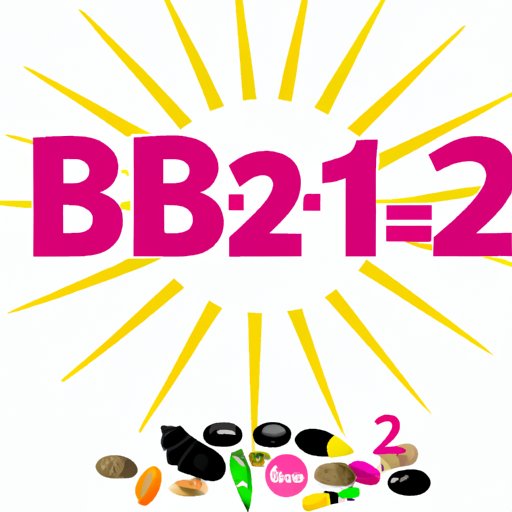
Introduction: Exploring the Benefits of Vitamin B12
Vitamin B12 is a water-soluble vitamin that is essential for many bodily functions. It is involved in metabolism and energy production, red blood cell formation, neurological function, and more. Vitamin B12 is also known as cobalamin because it contains the metal cobalt.

Overview of How Vitamin B12 Functions in the Body
Vitamin B12 is essential for the normal functioning of the brain and nervous system, and for the formation of red blood cells. It helps convert carbohydrates into glucose, which is used to produce energy. Additionally, vitamin B12 aids in the metabolism of fats and proteins, as well as the synthesis of DNA.
Metabolism and Energy Production
Vitamin B12 plays an important role in metabolic processes. It helps break down proteins and fats, ensuring that they are properly absorbed by the body. Additionally, vitamin B12 helps convert carbohydrates into glucose, which is then used to produce energy. This energy can be used for a variety of activities, including physical exercise.
Vitamin B12 also helps reduce fatigue and exhaustion by aiding in the production of red blood cells. Red blood cells are responsible for transporting oxygen throughout the body, and when there is not enough oxygen being delivered to the cells, it can lead to feelings of tiredness and lethargy. Vitamin B12 helps ensure that the body has enough energy to function properly.
Deficiency in Vitamin B12
A deficiency in vitamin B12 can lead to a variety of health issues. Common symptoms of a vitamin B12 deficiency include fatigue, anemia, nerve damage, memory loss, depression, and confusion. People who are at risk for a vitamin B12 deficiency include vegetarians and vegans, people with digestive disorders, and those over the age of 50.
A vitamin B12 deficiency may be caused by inadequate dietary intake, malabsorption due to gastrointestinal conditions such as Crohn’s disease or celiac disease, or the inability of the body to absorb the nutrient from food. Additionally, some medications can interfere with the absorption of vitamin B12.

Foods Rich in Vitamin B12
Animal-based foods are the best sources of vitamin B12. These include beef, poultry, eggs, fish, milk, and dairy products. For vegetarians and vegans, some plant-based foods are fortified with vitamin B12, such as breakfast cereals, plant-based milks, and nutritional yeast.
Effects of Vitamin B12 Supplements
Vitamin B12 supplements may be beneficial for people who have difficulty getting enough vitamin B12 from their diet. However, it is important to note that taking too much vitamin B12 can cause side effects, such as nausea, diarrhea, and headaches. It is also important to talk to your doctor before taking any supplement, as some medications may interact with vitamin B12.
Conclusion: Vitamin B12: A Vital Nutrient for Good Health
Vitamin B12 is an essential nutrient that is necessary for many bodily functions. It plays a role in metabolism, energy production, and red blood cell formation. A deficiency in vitamin B12 can lead to a variety of health issues, so it is important to ensure adequate intake through food or supplementation. Eating animal-based foods or taking vitamin B12 supplements can help ensure adequate intake of this vital nutrient.
To ensure adequate vitamin B12 intake, it is important to eat a variety of animal-based foods, such as beef, poultry, eggs, fish, milk, and dairy products. Vegans and vegetarians should look for foods that are fortified with vitamin B12, such as breakfast cereals, plant-based milks, and nutritional yeast. Additionally, vitamin B12 supplements may be beneficial for some individuals.
Vitamin B12 is an important nutrient that is necessary for good health. By taking steps to ensure adequate intake of vitamin B12, you can help ensure that your body is getting the nutrients it needs to function properly.


